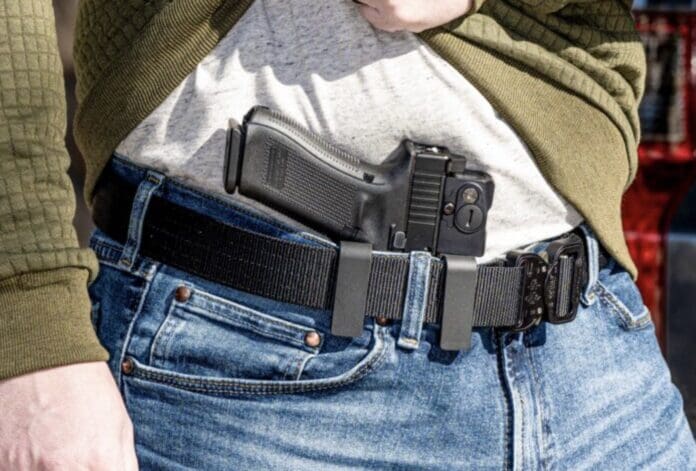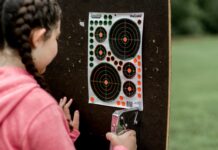Back in January, a three-judge panel of the 3rd Circuit Court of Appeals ruled Pennsylvania’s ban on 18- to 20-year-olds carrying firearms during a declared emergency to be unconstitutional under the standards prescribed by the 2022 Supreme Court ruling in Bruen.
At the time, U.S. Circuit Court Judge Kent A. Jordan, wrote for the court: “We understand that a reasonable debate can be had over allowing young adults to be armed, but the issue before us is a narrow one. Our question is whether the (state police) commissioner has borne his burden of proving that evidence of founding-era regulations supports Pennsylvania’s restriction on 18-to-20-year-olds’ Second Amendment rights, and the answer to that is no.”
The state, of course, appealed the ruling to the U.S. Supreme Court. And on Tuesday, the Supreme Court refused to hear the case, but surprisingly sent the case back to the 3rd Circuit for that court to reconsider its earlier ruling. It’s even more troubling that in the two-sentence order the Supreme Court asked the lower court to reconsider the case in light of the recent decision in the Rahimi case, in which the high court ruled that domestic abusers forfeit their Second Amendment right.
At first blush, it might seem the Supreme Court is equating young adults under 21 to domestic abusers, which would also be troubling. Fact is, gun owners 18 to 20 years old, who are old enough to practice every other constitutionally protected right, often have their Second Amendment rights infringed upon in a number of states.
In fact, expanding those states that do so is a major goal of gun-ban groups. In a 50-point action wish list released last December by the Violence Policy Center, infringing on the rights of 18- to 20-year-olds was high on the list. “The goal on both the state and federal levels should be a ban on the possession of long guns and handguns for those under the age of 21,” VPC stated in the report.
One extremely aggravating aspect of trying to fight this battle in court is a combination of the age of the plaintiffs in such cases and the slow-moving nature of the American judicial system. In one of the most pointed decisions yet, the 4th Circuit Court of Appeals struck down the federal law prohibiting Americans from purchasing handguns before they were 21.
The case—Hirschfeld v. Bureau of Alcohol, Tobacco, Firearms, and Explosives—revolved around an 18-year-old Virginia woman who filed for and received a restraining order against her violent ex. In her desperation to try to keep the man from hurting or even killing her, she went to her local gun shop, only to be told she couldn’t purchase a handgun to protect herself because of federal law.
The opinion explaining the 2-1 decision in favor of the plaintiffs was well reasoned and to the point.
“When do constitutional rights vest?” Circuit Court Judge Julius Richardson wrote. “At 18 or 21? 16 or 25? Why not 13 or 33? In the law, a line must sometimes be drawn. But there must be a reason why constitutional rights cannot be enjoyed until a certain age. Our nation’s most cherished constitutional rights vest no later than 18. And the Second Amendment’s right to keep and bear arms is no different.”
While that was a major victory, it was all for naught. Only a few months later the same judge threw out the decision because the plaintiffs in the case had reached age 21 so were no longer being unconstitutionally infringed!
Most recently, a Utah lawmaker introduced a measure that would allow 18- to 20-year-olds to openly carry firearms in most public spaces in Utah.
“The goal of the bill is to clarify firearm law in the state of Utah because citizens should know their rights,” Rep. Karianne Lisonbee told KSL.com. “This process subsequently raised several policy questions; and when those policy questions came up, I attempted to align (the proposed bill) with legislative intent that protects Utahns in exercising their fundamental Second Amendment rights.”





For those who don’t understand what this means, it means, look at it again and get it right or we will force you to get it right.
Pennsylvania should immediately discharge all 18 – 20 year olds from its National Guard, and deny enlistment for all 18-20 year olds. When they enlist they swear an oath, as a condition of contract, that includes “…do solemnly swear (or affirm) that I will support and defend the Constitution of the United States…” (yes, even in the National Guard). With no completely vested interest in citizenship in being able to exercise ALL constitutional rights, the oath they took can not be upheld and is false thus voiding their contracts. The same for all 18 – 20 year old members of the standing active military (the also do the “…do solemnly swear (or affirm) that I will support and defend the Constitution of the United States…” as a condition of contract).
No one (except the U.S. Supreme Court justices) knows what this recent U.S. Supreme Court decision means.
It could mean that the U.S. Supreme Court wants to uphold unconstitutional laws which criminalize adults under the age of 21 who possess firearms. It could also mean that the Supremes want a better case to settle this “nuance” which really is not a nuance at all.
Side note: I wonder if any of the U.S. Supreme Court justices will call any of the justices on the lower court and provide any additional explanation/guidance beyond their official public written response?
The Second Amendment is causing to many problems. Change it or abolish it all together.
For the good of the country.
Harris/Walz 2024
Time to reread Rahimi…The inference is that public policy MAY permit bans of concealed carry for 18-20 year olds. Notably, I read that the law in this case is app. 150 years old, taking it back to the 1870s.
Given that 18 year olds can and do enlist in the military, where they have access to machine guns as well as rifles and ordinary handguns, the existing laws that bar 18 year old civilians from the acquisition of common hand guns makes no sense at all.
“Given that 18 year olds can and do enlist in the military, where they have access to machine guns as well as rifles and ordinary handguns”
Actually they are or may be required to carry them in the military, and can face severe penalties under military law if they don’t comply.
Sucks to be 18 – 20. You either are not allowed to carry in declared emergencies, or you are conscripted in declared emergencies and used as gun-toting cannon fodder.
Shows what some think of those who traditionally carry the weight of our battles.
The boycott MA needs is a mass tax boycott by those who actually pay them and the rest of their businesses to move to red states. Then those that don’t pay their fair share won’t get their welfare checks and there will be pitchforks and torches carried by the “proletariat” out front of the capital…why pay to fund the left if you have no rights?
most hot agency haridwar.nightscharm.com
Comments are closed.